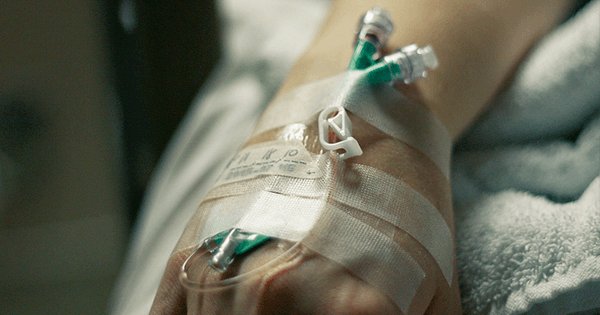
My facial surgery took place on February 11 in Antwerp, Belgium. It didn’t go well. That’s what the nurses told me eight days later, when I emerged from a medically induced coma. My throat had swelled up from unexpected bleeding, which prevented them from extubating—removing the endotracheal tube. They left the tube in and got me to a hospital.
My coma, which didn’t include the knowledge that I was in a coma, was a nonstop barrage of vivid mental events. In it, I was fighting for my life as a medical prisoner in my surgeon’s clinic, certain I would die if I didn’t escape. I could already sense the news of my death spreading over the curve of the earth to friends in the United States. I kept ripping out the anesthesia tubes inside me, trying to stay aware. A male nurse kept re-inserting them and upping the dosage. Finally, my surgeon met with me and agreed to let me visit with my ex-girlfriend’s mother, who’d been dispatched to Antwerp to get me out. He made me promise to return two days later so he could remove the tube from my throat. Later, as I struggled to get up to meet a waiting Uber car, two nurses rushed in saying, “Where are you going, Diana?!” They strapped me to the bed and sedated me with a hypodermic. I told them I had a deal with the surgeon, but they had orders from him to keep me there. “There’s a special place in hell for doctors who lie to patients,” I said, and asked them to deliver that message. The next day my surgeon and his wife were deciding what to do with me. She scolded him for forgetting to take that tube from my throat. Now they couldn’t afford to let me go—ever. A young raven-haired nurse entered, unsealed an ominous little bottle and fed it into my IV line. As cold fluid crept up my arm, I kept asking her name. “I want to know the name of the last person I see on Earth,” I said.
It would take hours to narrate even a fraction of what happened in that coma, which included dying three times, two memorial services, and writing one last “Life in Transition” column. I wrote it in my head, figuring I’d somehow manage to get to a computer, type it, and hit send, even though I was dead. It turns out, I revealed in the column, that you can’t write when you’re dead, which is a shame given all that time and perspective. I also realized there would be no more meals and, saddest of all, my transition was over. I’d never get to see how I would have turned out.
On February 19, I awoke in an ICU. A blonde, middle-aged nurse asked if I knew where I was. Having been asked that repeatedly in the coma, I was ready: “Antwerp, Belgium.” Actually, I’d been moved to a hospital in a nearby town where I was under the watch of a throat specialist. I was too weak to lift my arms, my head reverberated with pain, and I had tubes coming from all over. When the nurse cleaned me, I worried she’d find the scissors I’d stashed in my hospital gown to cut the straps used by the coma nurses to restrain me. A few days later, when I got my computer back, I went online to search for my obituary, and was puzzled not to find it. It would take some time to entertain the idea that I might actually be alive.

